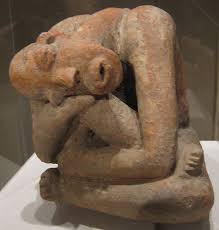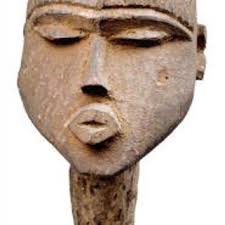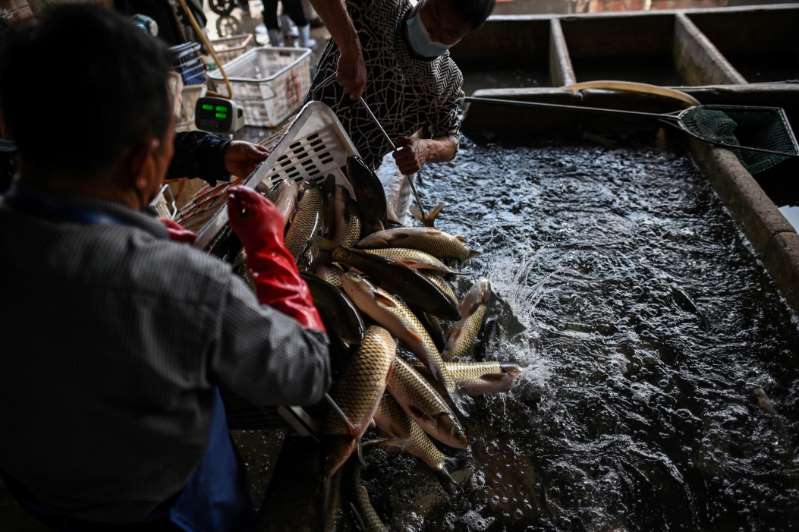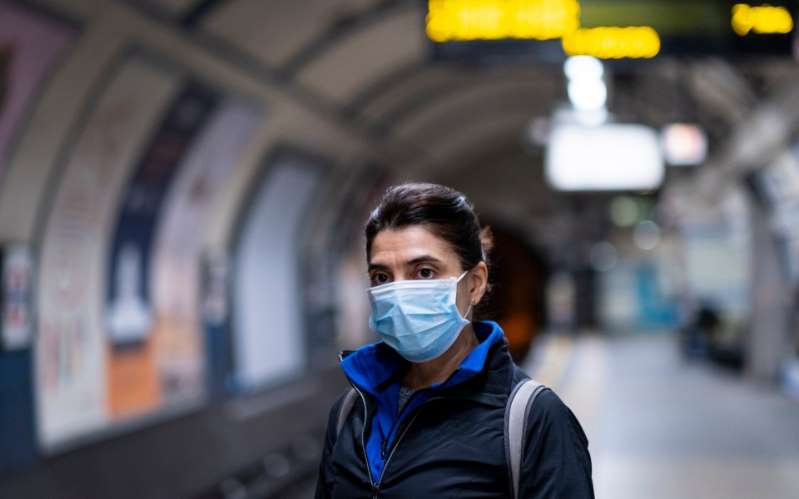Can aspirin reduce your risk of catching coronavirus? Study shows surprising results











Can aspirin reduce your risk of catching coronavirus? Study shows surprising results
Aspirin is an everyday painkiller for aches and pains, and is also known as acetylsalicylic acid. Aspirin is often available combined with other ingredients in some cold and flu remedies, and you can buy most types of aspirin off the shelf in pharmacies, shops and supermarkets. Aspirin is best taken alongside food, as this way you'll be less likely to get an upset stomach or ache. It isn't recommended for children under 16, according to the NHS, as it can make children more likely to develop a very rare but serious illness called Reye's Syndrome. Apart from that, most people aged 16 and over can safely take aspirin - but if you're unsure, contact your doctor or GP first.
Can aspirin reduce your risk of catching coronavirus?
According to a recent study, taking aspirin pills may help protect against coronavirus infection.
Data from more than 10,000 people who were tested for the virus between February and June 2020 revealed one aspirin tablet (75mg) per day led to a 29 percent lower risk of catching Covid.
The study was conducted by Israeli researchers at Leumit Health Services, Bar-Ilan University and Barzilai Medical Centre, were published last month in the Federation of European Biochemical Societies (FEBS) Journal.
Study leader Eli Magen said: "This observation of the possible beneficial effect of low doses of aspirin on COVID-19 infection is preliminary, but seems very promising."
Data of patients from a database was analysed and the proportion of people on aspirin was lower among people who had the virus than those who didn't.
73 people who tested positive were taking aspirin, accounting for one in nine of all positive cases.
However, 16 percent of people - equating to about one in six - who tested negative were taking aspirin.
On average, the people taking aspirin were 14 years older; were overweight but not obese unlike the non-aspirin group; and more likely to have high blood pressure and diabetes.
The researchers also found that while those taking aspirin are less likely to catch the virus, they also recover quicker if they do contract Covid.
The average time between a patient's first positive test and their second negative result goes down from 21.9 days to 19.8 when they were taking aspirin on a daily basis.
The researchers wrote: "A large, nationwide study revealed that the use of aspirin is associated with a decreased likelihood of a positive COVID-19 test result."
One thing still unknown is exactly how aspirin works to prevent infection, but the authors believe its antiviral properties come from the ability to change the immune system's response to the virus.
Another study looking at different pharmaceuticals that could help with Covid is the RECOVERY trial.
RECOVERY is a world-leading project headed by Britain's University of Oxford, and is the largest and most comprehensive study investigating which rugs are beneficial to hospitalised patients with the virus.
The study has so far revealed the steroid dexamethasone and the arthritis medications tocilizumab and sarilumab are effective at helping to treat the virus.
Dexamethasone costs just £5 and reduces the risk of dying from the coronavirus up to 35 percent.
However, further research into the drug found people who had only received dexamethasone still had a death rate of 35.8 percent.
But this dropped to just 25.3 percent when they were also given a single dose of either tocilizumab or sarilumab, which comes in at about £1,000 per treatment.
All three pharmaceutical products have now been approved for use within the NHS.
Other drugs and treatments have been investigated and subsequently let go by RECOVERY, including anti-gout drug colchicine and arthritis helper azithromycin.
Reference: Daily Express: Myriam Toua
Nurses not heroes but highly-skilled workers with key role in safety, nursing chief says












Nurses not heroes but highly-skilled workers with key role in safety, nursing chief says
Nurses are not “angels or heroes” but are highly-skilled workers with a key role in safety, the head of the Royal College of Nursing (RCN) has said.
Speaking one year since the World Health Organisation (WHO) officially declared a pandemic, Dame Donna Kinnair said Covid-19 has demonstrated the highly-skilled, technical aspects of nursing.
“Everyone knows a nurse but not everyone can say they know what a nurse does – until now,” she said.
“Old-fashioned stereotypes of nurses as handmaidens of the ward have been rubbished.
“We are not angels or heroes – we are highly skilled and carrying out a safety-critical job.
“Nursing staff have given their all to treat patients during the pandemic and some have paid the ultimate price.
“Others are facing burnout and what they need now is the opportunity to rest and recover when we come out of the pandemic.”
According to RCN analysis, at least 952 health and care workers in the UK have now died as a result of the virus but the true number is likely to be much higher.
The Government has come under fire in recent days over its controversial proposal for a 1 per cent pay rise for NHS workers.
Chancellor Rishi Sunak is likely to face questioning on the pay offer when he appears before the Commons Treasury Committee on Thursday regarding his recent Budget.
At Prime Minister’s Questions on Wednesday, Labour leader Sir Keir Starmer demanded MPs be allowed to vote on pay increases for NHS workers, as he accused Boris Johnson of “breaking promise after promise”.
He warned nurses face a “real-terms cut” and said the PM was choosing to “shut the door in their face at the first opportunity”, having previously clapped for carers.
Mr Johnson repeatedly claimed a pay increase would be delivered for NHS workers, defended his Government’s spending record and said he would see what the independent pay review body reports back.
Sir Simon Stevens, chief executive of the NHS in England, told MPs on Tuesday that health workers, including nurses, had expected a pay rise above the 1 per cent proposed by the Government.
He said plans set out previously had budgeted for NHS pay to increase by 2.1 per cent this year.
Health minister Lord Bethell has argued nurses are well paid and have secure jobs while millions have been left out of work due to the pandemic.
While acknowledging it is a “challenging” profession, he said it was also an attractive one that “a long queue of people” would like to take up.
Health unions and the TUC are urging the public to take part in a slow hand-clap on Thursday evening over the pay offer, with people asked to stand on their doorsteps and balconies to take part in the action.
Meanwhile, it is understood 8,100 international nurses have joined NHS trusts as registered nurses between April and January this year.
The health service plans to recruit as many as 1,000 nurses per month for the next year, according to The Independent.
Ruth May, chief nursing officer for NHS England, said: “It is a testament to our wonderful NHS that healthcare professionals from all over the world have chosen to come to work with us in a variety of roles providing support and care to patients, and we are delighted to welcome them to our teams and extend the invitation to others to join us.”
Wuhan wet market is most likely origin of Covid pandemic, WHO scientists say











Wuhan wet market is most likely origin of Covid pandemic, WHO scientists say
The Wuhan wet market is still the most likely hypothesis for the origin of the Covid-19 pandemic, members of a World Health Organisation delegation to China have said.
Four scientists who joined the month-long mission earlier this year said they had found no evidence to support theories that the outbreak was caused by an accidental lab leak.
They told a Chatham House briefing there was also nothing to support claims the disease was deliberately developed by China, and blamed conspiracy theories for delaying the mission.
Zoologist Dr Peter Daszak, president of NGO EcoHealth Alliance which works in the field of zoonotic disease, said the team had identified a viable conduit between the wet market in Wuhan and to regions where the closest relatives of Covid-19 are found in bats.
We concluded that it’s extremely unlikely that there was a lab incident

He said: “It provides a link and a pathway by which these viruses could convincingly spill over from wildlife into either people or animals farmed in the region and then shipped into the market by some means.”
Dr Daszak said the theory that the virus crossed into domesticated or farmed animals and got into the Wuhan market was the scenario that both the WHO scientists and their Chinese counterparts considered most likely.
The scientists said they found no evidence to support theories that the disease leaked from the three virology labs in Wuhan and they had been given access to all three.
Dr Marion PG Koopmans, head of viroscience at University Medical Centre Rotterdam, said: “We discussed the research programmes, the routine testing programmes, the way they work, what they had done in terms of health monitoring and testing of staff.
“Based on that we concluded that it’s extremely unlikely that there was a lab incident,” Dr Koopman said.
She added: “What we have been saying to people who are saying ‘it has to be something else’ then please provide what evidence you have to WHO and then it will be taken into consideration.
“We cannot work on the basis of speculation, we work on the basis of observation that we have,” she said.
Dr Daszak said that science had been “crushed” by factions pushing anti-China conspiracy theories – notably Donald Trump – to further their political agenda.
“We have not had access to work in China on the origins for the last 12 months which is ironic because we could have been on the ground there working with our Chinese colleagues and by now we might have had some really important answers as to how it emerged.”
David Heymann, professor of infectious disease epidemiology at the London School of Hygiene and Tropical Medicine and head of the Centre on Global Health Security at Chatham House, acknowledged the lab leak hypothesis is not in itself a conspiracy theory.
We don’t put enough energy into forecasting pandemics
He told the briefing: “We know that lab accidents can occur and what the team is saying is that there is no conspiracy that there could have been a leak.
“But this conspiracy theory about manipulating a virus in a laboratory is what many people are basing their belief on and I think there is probably no evidence for that.”
Dr Daszak called for the threat of pandemics to be treated with the same level of seriousness as terrorism in the wake of the 9/11 attacks.
“We don’t put enough energy into forecasting pandemics and working out where the next ones are going to come from and what it might be, whereas we do that with hurricanes and typhoons and all the rest of it,” he said.
He added: “After 9/11 we put in place a mechanism to track every single phone call into the US and the minute there’s a rumour on the web or on these phone calls of an attack, the network is disrupted prior to the attack.
“That’s the kind of change or shift in thinking we need for pandemics I believe.”
Dr Daszak said: “Let’s look at where wildlife are interacting with livestock and people and see what is out there and try and find out what threats could emerge in future.”
He added: “That’s the strategy that will give us an incredible return on investment.”
Reference: Evening Standard: Sean Morrison
Kent Covid variant twice as deadly as feared, report suggests











Kent Covid variant twice as deadly as feared, report suggests
The UK variant is twice as deadly as feared, research of more than 100,000 coronavirus infections suggests.
In January, Sir Patrick Vallance, the government’s chief scientific officer, warned that the variant, which was discovered in Kent in September, may be 30 per cent more lethal.
But research published in the BMJ on Wednesday suggests the true figure is around 64 per cent.
Scientists from Bristol, Lancaster, Warwick and Exeter Universities compared the outcomes of 54,000 people infected with the UK variant with the same number infected with the original virus between Oct 1 and Jan 29.
They matched the groups by age, sex, ethnicity, area and social deprivation, to make sure deaths were not being caused by other factors, such as extra pressure on the NHS in a particular trust, or any underlying increased risk.
In the first peer reviewed study into the mortality rate of the UK variant, researchers found that the rate of dying for those infected by the original virus was 2.5 in 1000, but rose to 4.1 in 1,000 for the UK variant, an increase of 64 per cent.
“The variant of concern, in addition to being more transmissible, seems to be more lethal,” the authors conclude.
In the last few months there have been mixed reports about whether the UK variant was more deadly.

The government’s COVID-19 Clinical Information Network (CO-CIN) has consistently found no evidence that the UK variant increases the risk of death. Imperial College suggested it may be 29 per cent more deadly, while Public Health Scotland (PHS) suggested a nine per cent increase and Public Health England (PHE) put the figure at 65 per cent.
At a press conference, shown below, on January 22, Sir Patrick said the death rate was around 30 per cent higher.
Commenting on the research, Dr Simon Clarke, Associate Professor in Cellular Microbiology at the University of Reading, said: “While it is important to note that absolute risk remained low this is substantially higher than the 30-40 per cent possible increase reported by Sir Patrick Vallance on 22nd January, which was dismissed as unlikely in some quarters.
“It is now well established that the Kent variant is more transmissible; it has come to dominate in the UK and it is increasing in prevalence in other parts of the developed world.
“This increased lethality, in addition to the increased transmissibility, means that this version of the virus presents a substantial challenge to healthcare systems and policy makers. It also makes it even more important people get vaccinated when called.”
However some experts said other factors could have skewed the data such as the time of year and underlying illnesses.
Dr Julian Tang, Honorary Associate Professor/Clinical Virologist, University of Leicester, said: “I’m still not yet very convinced by these results.
“Clinical teams know that the coldest winter temperatures occurring in Jan/Feb can exacerbate all the comorbidities that predispose to more severe outcomes of Covif-19.
“So without the careful matching of comorbidities in the variant and variant arms, these differential clinical severity model outcomes are still questionable.”
“We really need to revisit this in Spring to account for the cold weather factor - and there are also other seasonal variables related to shorter daylight hours, such as melatonin levels that may impact related to the host immune system.”
Researchers said the increased morality may be linked to increased viral replication.
Reference: The Telegraph: Sarah Knapton
Articles - Most Read
- Home
- LIVER DIS-EASE AND GALL BLADDER DIS-EASE
- Contacts
- African Wholistics - Medicines, Machines and Ignorance
- African Wholistics -The Overlooked Revolution
- African Holistics - Seduced by Ignorance and Research
- The Children of the Sun-3
- Kidney Stones-African Holistic Health
- The Serpent and the RainBow-The Jaguar - 2
- PART ONE: DIS-EASE TREATMENT AND HEALTH-3
- 'Tortured' and shackled pupils freed from Nigerian Islamic school
- King Leopold's Ghost - Introduction
- PART ONE: DIS-EASE TREATMENT AND HEALTH-4
- PART ONE: DIS-EASE TREATMENT AND HEALTH-2
- PART ONE: DIS-EASE TREATMENT AND HEALTH-5
- African Wholistics - Medicine
- Menopause
- The Black Pharaohs Nubian Pharaohs of Ancient Egypt
- The Mystery System
- PART ONE: DIS-EASE TREATMENT AND HEALTH-6
Who's On Line?
We have 144 guests and no members online
Ad Agency Remote
Articles - Latest
- The Male G Spot Is Real—and It's the Secret to an Unbelievable Orgasm
- Herbs for Parasitic Infections
- Vaginal Care - From Pubes to Lubes: 8 Ways to Keep Your Vagina Happy
- 5 Negative Side Effects Of Anal Sex
- Your Herbs and Spices Might Contain Arsenic, Cadmium, and Lead
- Struggling COVID-19 Vaccines From AstraZeneca, BioNTech/Pfizer, Moderna Cut Incidence Of Arterial Thromboses That Cause Heart Attacks, Strokes, British Study Shows
- Cartilage comfort - Natural Solutions
- Stop Overthinking Now: 18 Ways to Control Your Mind Again
- Groundbreaking method profiles gene activity in the living brain
- Top 5 health benefits of quinoa
- Chromolaena odorata - Jackanna Bush
- Quickly Drain You Lymph System Using Theses Simple Techniques to Boost Immunity and Remove Toxins
- Doctors from Nigeria 'facing exploitation' in UK
- Amaranth, callaloo, bayam, chauli
- 9 Impressive Benefits of Horsetail
- Collagen The Age-Defying Secret Of The Stars + Popular Products in 2025
- Sarcopenia With Aging
- How to Travel as a Senior (20 Simple Tips)
- Everything you need to know about mangosteen
